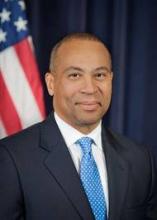Six years into Massachusetts’ ambitious effort to overhaul its health system, there are fewer uninsured residents but costs continue to rise. Physicians say that cost containment will be a major challenge going forward – and likely will hit them hard.
Signed into law in 2006 by then-Gov. Mitt Romney, the health reform program, called "An Act Providing Access to Affordable, Quality, Accountable Health Care," essentially requires all state residents to acquire health insurance. The state Medicaid program was expanded to cover those at higher income levels, and a health insurance exchange was created to offer private insurance to all others. The state completely covers plans for residents with incomes below 150% of the federal poverty level and subsidizes others up to 300% of the poverty level.
Those who do not buy insurance are charged a penalty on their state tax return, based on income.
The success or failure of the plan is being closely watched, as it is widely considered the model for the federal Affordable Care Act.
Now, almost 98% of adults and close to 100% of children in Massachusetts have health insurance, Dr. JudyAnn Bigby, health and human services secretary for the commonwealth, said at a recent presentation in Washington.
With better and more regular access to care, more residents are receiving preventive services.
"Our rates of screening for colon cancer, cervical cancer, [and] prostate cancer have all gone up significantly," Dr. Bigby said, adding that "we also know people are getting better care for diabetes." Emergency department visits for nonurgent conditions also have declined, especially for patients with asthma and chronic obstructive pulmonary disease.
Reform has been mostly well-received by both doctors and patients. A 2011 poll by the Harvard School of Public Health and the Boston Globe found that 63% of residents said they supported the law.
A 2009 poll of physicians found similar views. Of 2,125 respondents, 70% said they thought reform had been a good thing.
However, in spite of all the positives, 50% said that the medical practice environment had worsened since reform. The biggest complaint: the law‘s administrative burden.
Dr. Joseph W. Gravel Jr., president of the Massachusetts Academy of Family Physicians, agreed, adding that his practice employs a huge number of people just to do paperwork. It seems that "paperwork is used almost as a cost reduction strategy, it seems sometimes to a primary care doctor," he said in an interview.
Physicians in the Harvard survey also expressed concerns about rising costs, and were split on the law’s impact on access to primary care: Roughly a quarter said the law was hurting access, whereas the same number said it was helping.
The concept behind the reform law "was brilliant," because it increased insurance coverage and gave patients incentives to get preventive care, said Dr. Richard Dupee, governor of the Massachusetts chapter of the American College of Physicians. But at the same time, he said, the law "discincentivizes doctors from seeing patients because the reimbursement is so poor."
Dr. Louis Kuchnir, president of the Massachusetts Academy of Dermatology, said that although the law has increased the number of people with coverage, they do not have any better access to dermatology care.
"Very few dermatologists can afford to participate," he said in an interview. The reimbursement for Medicaid and the state-subsidized plan "is less than our overhead in many cases."
And with the law’s cost-containment requirements now on the books, things may get worse. Dr. Dupee said that "the handwriting is on the wall: Reimbursement is going to start going down across the board. Otherwise, there is no way to manage the cost of this thing."
Cost Containment Lags
No rigorous cost controls were included in the reform plan when implementation started. The intention was to get everyone covered first and then begin looking at the cost side of the equation.
A 2008 addition to the law began laying the groundwork for cost control by setting up several councils to study how best to rein in spending. The main work is in a 2011 proposal by Gov. Deval Patrick (D), which urged a shift from fee for service to global payment for state employees, Medicaid recipients, and enrollees in the Commonwealth Care program. Those groups account for about 25% of the state’s residents.



